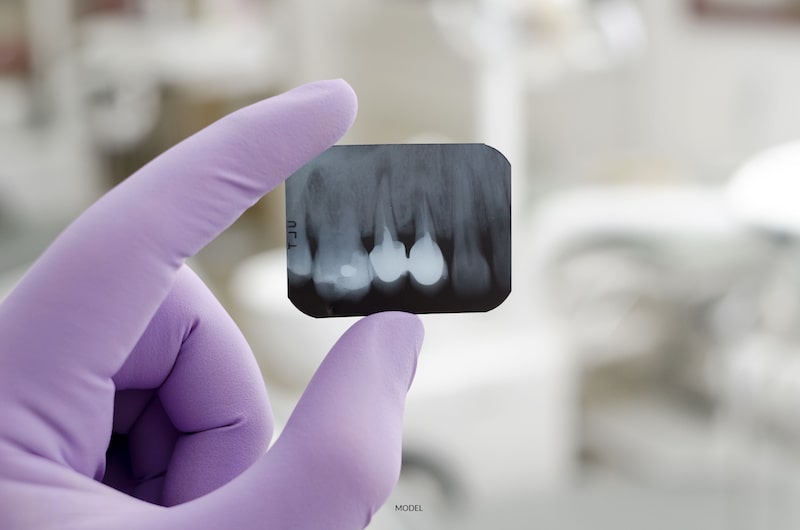2 Minute Read:
X-rays are a common diagnostic practice when you visit a dental office. Your dentist uses the images to see your jawbones, the roots of your teeth, teeth under your gums, and the areas between teeth. X-rays help your dentist find problems that cannot be easily seen during your regular dental exam.
Dental x-rays use very low levels of radiation, much less than that used in other medical imaging. A responsible dental office will ensure that x-rays are made only when necessary and that safety protocols are strictly followed to ensure everyone’s well being.
When Are Dental X-Rays Required?
X-rays are often part of a yearly checkup and used to determine the overall health of teeth and gums. There are several types of x-rays used in specific scenarios.
- Bitewing x-rays are taken to check for cavities between teeth.
- A panoramic x-ray manages to get all the upper and lower teeth and large portions of the jaws in one picture. They are often taken to see how wisdom teeth are positioned, but can also be used to spot abnormalities in the jaw and neck area.
- Periapical x-rays show a few complete teeth, their roots, and the jawbone in a certain area of the mouth.
What Are the Health Risks Associated With Dental X-Rays?
There is no evidence that dental x-rays are harmful if administered on an occasional basis. Most dentists agree that for healthy patients on a maintenance program and not looking for a specific treatment, x-rays every one or two years is appropriate. However, if procedures, such as extraction or root canal, are considered, additional x-rays may be required.
Be sure to wear the protective gear offered and follow the hygienist or dentist’s instructions.
When administered with care, x-rays are an important tool for the delivery of dental healthcare. Follow your dentist’s advice regarding frequency and try not to worry about radiation. The minor risk is worth it for the information that can be added to your dental chart.
Interested in Learning More?
If you are experiencing dental pain or it is time for your bi-yearly dental appointment, contact Dr. Gum by calling (610) 746-0488 or filling out our online contact form.





